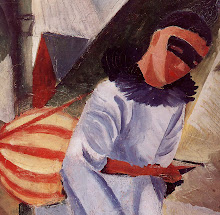[A] penalty is a "requital for what they have wrought"; the penalty has a retributive character, a righting of the wrong as ordained by God. But in conjunction with this is a reference to forgiveness of the penitent, possibly because infliction of the penalty is atonement for the crime. As one hadith states, "The hand of the repentant thief precedes him to heaven."Amputation of the hand is the proscribed punishment for theft in Islamic law. More importantly, it can never change.
As I've been studying Islamic law this term, I've been on the lookout for signs of flexibility - of ways to adapt the law to changing societal norms. There is, in theory, an abundance of tools for adaptation, and Islamic law in its first few centuries developed a rich tradition of jurisprudence adapting Islamic law to different times and to places far beyond the Arabian peninsula. Yet that tradition has itself achieved an unassailable position, and Islamic jurists today - who seem to demonstrate both a monastic's reticence and an academic's turf-jealousy - would be at pains to update the law, if they had any inclination to do so. Complicating the issue is the jurists' skepticism of the sources of positive law, be they kings or democratic assemblies. Islamic jurists are ambiguous as to whether statutes and decrees are recognizable under sharia; at best, they are inferior companions to the jurist-deduced law, usul al-fiqh.
I feel justified in concluding from what I've read this semester that a legal tradition built squarely on religious precepts simply cannot function as a modern, comprehensive legal system. With Jewish law, canon law, etc., this is not much of a problem, since the "laws" here merely "bind" religious officials, offices, or adherents. In contrast, sharia purports to be an omnibus legal system with a divinely ordained answer for every legal question. I wouldn't want to have canon law govern my rights in a democratic society; indeed, canon law is uniquely inappropriate for this purpose. I find it increasingly difficult to see how any other conclusion can be reached with respect to Islamic law.

No comments:
Post a Comment